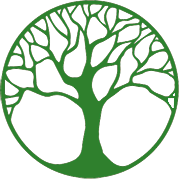‘War is Peace’ by Henry Chaussovsky
- Log in to post comments
To claim that Russia’s goal is to satisfy the former USSR’s ambitions and that Ukraine has any
potential to win the current war shows an extensive influence of the mass media narrative.
Indeed, to justify the wide-ranging supply of weapons to Ukraine the image of what the media
used to call ‘one of the most corrupt countries in the world’ must be presented as an innocent
victim.
I believe my background of having been raised in the area called Ukraine but on the fertile soil
of the Russian culture allows me to contribute to the subject.
While the West is immersed in destroying what is left of their cultural heritage in a progressive
degeneration (oxymoron intended) Russian nationalism is on the rise thanks to NATO or rather
US actions. This nationalism is mostly represented by returning to the roots of the nation by
restoring respect and love for the Russian culture and people, hence I dare to call this type of
nationalism healthy. By saying ‘returning’ I mean diverting from the encroaching Western
decadence (so-called ‘wokeness’) and coming back to what made Russia strong, patriotic, and
united. I have to mention that Russia while predominantly Christian, is a multi-ethnic state
where at least 15% of the population are Muslims. However, this doesn’t affect the rising unity
of its people, as ‘woke progressivism’ isn’t practiced by either group.
The war no matter how it is depicted by the West indeed carries existential importance for the
Russian state. I will not go into multiple reasons to explain why the encroachment of NATO
controlled by the US represents a true danger to the Russian state and its people.
The real war, as Dr. Smithin has correctly noticed, started in 2014, when the US orchestrated
the ‘Maidan’ coup by displacing a ‘democratically elected’ leader (by the West’s own
standards!) and installing a puppet. Thus, presenting this as the highly lauded democracy is just
an empty word. The whole idea is irrelevant and plain ridiculous in the current environment.
As I have mentioned, my background makes me rather familiar with the subject. For the sake of
consistency, I’ll keep referring to, as Ukraine, the part of the defunct Soviet Union formerly
known as the Ukrainian Socialist Republic. Ukraine’s independence appeared a product of the
demise of the USSR. Historically, this area was inhabited by groups of people practicing
different religions (Catholic vs. Russian Orthodox) and speaking various dialects while Russian
has always appeared as the predominant language. There is a significant cultural and language
difference between the groups of Eastern and Western Ukraine, which played a critical role
during WWII when the German occupants were assisted by the Western Ukrainian formations.
These groups appeared as a main force used in the persecution and murder of Jews and Poles
before and during WWII. As to the language differences now heavily used to divide people in
that country, practically no one can utilize a grammatically correct Ukrainian language. It
remains technically undetermined due to the immaturity of Ukrainian culture. For centuries,
2
the main territory of Ukraine has been a part of the Russian empire (it carried the name Little
Russia or Malorossia) and later of the USSR. As mentioned, certain nationalistic tendencies
existed in the Western part of the country close to Poland and Hungary resulting in the after-
war resistance movement against the communist regime.
I would like to mention that my cousins reside in Eastern Ukraine, in what is called today the
Lugansk People’s Republic (LPR), which allows me to accumulate intimate knowledge of the
post-Maidan events. One of them, a doctor, has personally witnessed atrocities committed by
the Ukrainian military and nationalistic Ukrainian structures against the Russian-speaking
population. These fit the classic definition of genocide. This is one of the motives of the Russian
Special Military Operation, as Russia calls it, which has practically resulted in civil war. I must
mention that the current amplified animosity between the Ukrainian East and West is rooted
less in ethnic and cultural contrast but more in the incessant propaganda campaign conducted
(by the West) during at least the last 8 years or, to be more precise, since the dissolution of the
Soviet Union. This campaign has been incredibly successful in taking advantage of the existing
cultural and language differences. I also have to mention that a large proportion of the
Ukrainian military actually consists of thoroughly conditioned ethnic Russians.
Conclusion:
Similar to the narrative that there are threats in the West itself to the now defunct ‘Freedom
and Democracy’ (thanks to Dr. Smithin for the contribution to this subject), so this Russia vs.
Ukraine narrative in the West has depicted Russia’s defensive actions as an ambitious invasion
and threat to Europe.
References to ‘Freedom and Democracy’ remind me of the similar storyline used across the
world during COVID, utilizing the argot of ‘Safe and Effective’ referring to the unknown and
untested substance claimed to be a ‘vaccine’. Well, this is how modern ‘science’ now presents
itself.
I conclude with the famous (or rather infamous) declarations from George Orwel’s 1984: ‘War
is Peace, Freedom is Slavery’.
